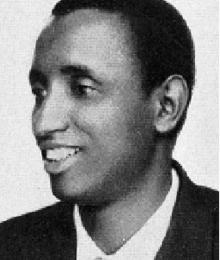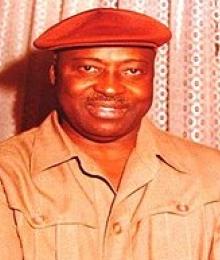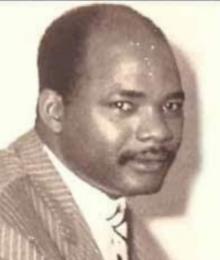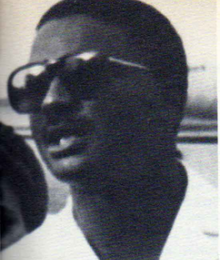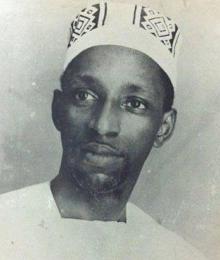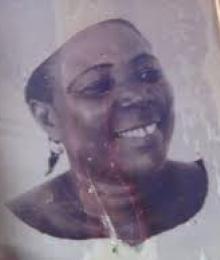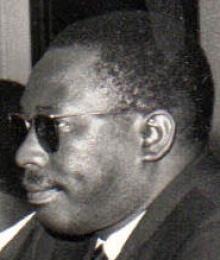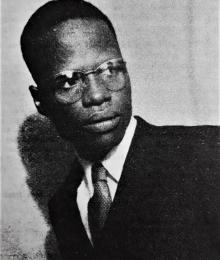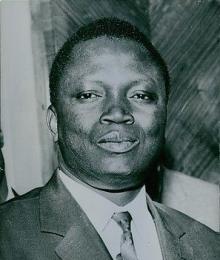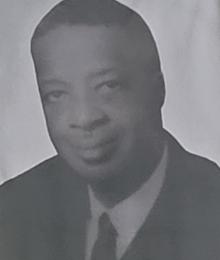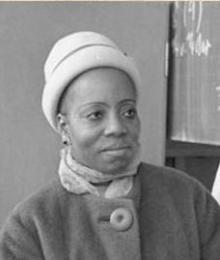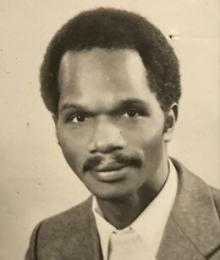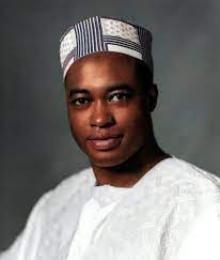
Boubacar Diallo Telli was a Guinean diplomat and visionary politician who played a central role in the struggle for African independence and the unity of the continent. As the first Secretary-General of the Organization of African Unity (OAU) from 1964 to 1972, his inspiring leadership and tireless efforts laid the foundation for greater cooperation among African emerging nations.
A fervent advocate of panafricanism, Telli dedicated his life to promoting African self-determination, decolonization and economic and cultural progress. Despite challenges and controversies, his unwavering commitment to the African cause has made him a respected figure whose legacy continues to inspire present-day generations in their quest for a united and prosperous Africa.
Introduction
Boubacar Diallo Telli was an eminent African statesman who left an indelible mark in the struggle for the continent's independence and unity. As the first Secretary-General of the Organization of African Unity (OAU), his visionary leadership and tireless efforts have paved the way for greater cooperation among African nations and the pursuit of collective progress. This biography traces the life of Diallo Telli, highlighting his contributions to African liberation movements, his diplomatic achievements and his crucial role in the founding of the OAU. His unwavering dedication to the Pan-African cause and enduring legacy continue to inspire present and future generations of African leaders.
Education
Diallo Telli was born on 18 June 1925 in Porédaka, Guinea, from a modest background. His father was a merchant and his mother, a traditional healer. Despite limited resources, Telli showed exceptional intellectual abilities from an early age, and his parents recognized his potential. He attended a local French school, academically excellent and showing a deep interest in the social and political affairs of his country and the African continent.
Continuing his pursuit of knowledge, Telli studied at the École Normale Supérieure William Ponty and obtained his bachelor's degree in Dakar. His career then led him to France, where he enrolled at the École Nationale de la France d'Outre-Mer in Paris. In 1954, he obtained his doctorate in law, immersing himself in the intellectual and political environment of the time, which fed his passion for African nationalism and self-determination.
During his stay in France, Diallo Telli participated actively in pan-African circles, engaging with prominent personalities such as Léopold Sédar Senghor, Aimé Césaire and Frantz Fanon. These interactions profoundly influenced his thinking and reinforced his determination to contribute to the liberation of Africa from the colonial yoke.
Diplomatic career
After his studies, Diallo Telli embarked on a diplomatic career that propelled him on the international stage as a tireless defender of African independence. In 1955, he was appointed head of the Office of the High Commissioner of French West Africa (AOF) in Dakar, becoming the highest African authority in the French colonial administration.
Following the referendum on 28 September 1958, in which Guinea chose independence from France, Telli was sent to the United States as the Permanent Representative of Guinea to the UN. He held this post until June 1964, with an interruption between June 1960 and March 1961. He was also the ambassador of Guinea to the United States from April 1959 to June 1961.
During this period, Diallo Telli established himself as an influential voice on the international stage, advocating with passion the cause of African decolonization and self-determination. His diplomatic talents and political insight have been widely recognized, with respect from peers and world leaders.
First Secretary General of the OAU
In 1963, when the Organization of African Unity (OAU) was founded in Addis Ababa, Ethiopia, Diallo Telli was appointed as the first general secretary of this emerging pan-African organization. This appointment demonstrated his position as a respected figure in the pan-African movement and his ability to bring the various African nations together under a common vision.
Telli's term as Secretary-General marked a crucial stage in the early years of the OAU. It has worked tirelessly to strengthen the institutional framework of the Organization, promote cooperation and promote unity among African States. Diallo Telli firmly believed that the fate of Africa was in the hands of his people and that the OAU had a crucial role to play in the exploitation of its collective power.
Under the leadership of Telli, the OAU advocated African unity, self-confidence and the promotion of African culture. He stressed the need for economic integration, the eradication of colonial borders and the resolution of conflicts by peaceful means. Telli also gave priority to issues such as human rights, decolonization and the fight against apartheid in South Africa, bringing together African nations in solidarity with those still under the yoke of oppression.
Struggle for African liberation
Even before his appointment to the OAU, Diallo Telli was already a fervent advocate of African liberation movements. In the 1950s, as the winds of change spread across the continent, his commitment to African independence became increasingly evident.
Telli played a key role in organizing the first Pan-African Conference, held in Accra, Ghana, in 1958. At this historic conference, African leaders and intellectuals gathered to develop strategies and defend independence. This event marked a turning point in the continent's struggle for freedom and inspired a new generation of leaders.
Telli's legal experience was valuable as he contributed to the drafting of resolutions and declarations calling for the recognition of African self-determination and the end of colonial domination. He also advocated the creation of the Casablanca Group, an influential bloc of African countries advocating immediate independence and closer cooperation among African nations.
Political career: Minister of Justice
In June 1972, after leaving his post as Secretary General of the OAU, Diallo Telli returned to Guinea, where he was appointed Minister of Justice on 21 August 1972. This decision surprised many, as Telli had received numerous offers from African Heads of State and international organizations, making his return to Guinea perplexed. Some speculated that Guinean President Sékou Touré had used dubious means to attract Telli, fearing his potential as a challenger to his presidency.
As Minister of Justice, Diallo Telli has demonstrated his unwavering commitment to justice, equality and the rule of law.
Imprisonment and death at Camp Boiro
Diallo Telli's tragic fate took a dark turn on July 18, 1976, when he was arrested at his home and imprisoned at Camp Boiro, a sinister detention centre known for his brutal treatment of political prisoners. The commission of inquiry, headed by Mamadi Keita, the brother-in-law of President Sékou Touré, accused Telli of orchestrating a conspiracy against the state.
During his detention, Diallo Telli was subjected to intense interrogations, physical and psychological torture, and an inadequate diet. Inhuman conditions and repeated torture severely affected his physical and mental well-being. Eventually, broken by unbearable pain, Telli succumbed to pressure and agreed to sign a forced "confession" of his alleged betrayal. However, the document remained inconsistent, even after it had been issued by the court, calling into question its legitimacy.
In February 1977, Diallo Telli, along with five other eminent prisoners, suffered an atrocious fate. They were subjected to the "black diet", a form of torture in which prisoners were deprived of food and water until their final death. Among the people killed alongside Telli were former ministers Barry Alpha Oumar and Drame Alioune, as well as military officers Diallo Alhassana and Kouyate Laminé.
The international community was horrified by the news of their deaths, as it shed light on the flagrant human rights violations perpetrated by the Sékou Touré regime. Despite Telli's previous position as OAU Secretary-General, the organization has not reacted strongly to his tragic death.
Call for justice
However, the disappearance of Diallo Telli, a widely respected international diplomat known for his dignity and good nature, has contributed to the growing awareness of the international community of the atrocities committed under President Sékou Touré. His death served as a sharp reminder of the repressive nature of the regime and the urgent need for accountability and justice in Guinea.
The tragic end of Diallo Telli’s life has become a symbol of the sacrifices made by those who dared to challenge authoritarian regimes in the pursuit of justice and freedom. His memory continues to inspire and mobilize efforts to promote human rights, democracy and the rule of law, both in Guinea and across the African continent.
Private life
Beyond his political and diplomatic commitment, Diallo Telli was a dedicated family man. He was married and father of several children. Although details of his private life remained largely discreet, he was known to attach great importance to his family and family responsibilities.
Despite the many demands and pressures of his work, Telli tried to find a balance between his professional obligations and his family life. His family had to face many challenges and sacrifices due to his busy career, but they have always been a source of support and inspiration for him.
Conclusion
Diallo Telli's lifetime illustrates the unwavering spirit of African liberation and unity. From his early involvement in the struggle for independence to his crucial role as the OAU's first Secretary-General, Telli has devoted his life to promoting African interests and fostering a collective sense of purpose.
Although his mandate was not without challenges, his unwavering commitment and visionary leadership laid the foundation for subsequent continental organizations and shaped the course of African history. The legacy of Diallo Telli will be celebrated forever as a testimony to the pan-African spirit and the pursuit of a better future for Africa and its people.
In recognition of his enormous contributions, Diallo Telli was honoured posthumously. The OAU/AU headquarters in Addis Ababa has been named the Diallo Telli Conference Centre, and its heritage serves as a reminder of the resilience and determination of African peoples in their quest for freedom and progress.











